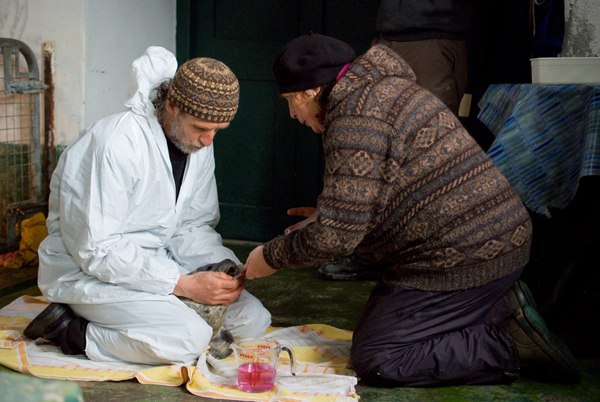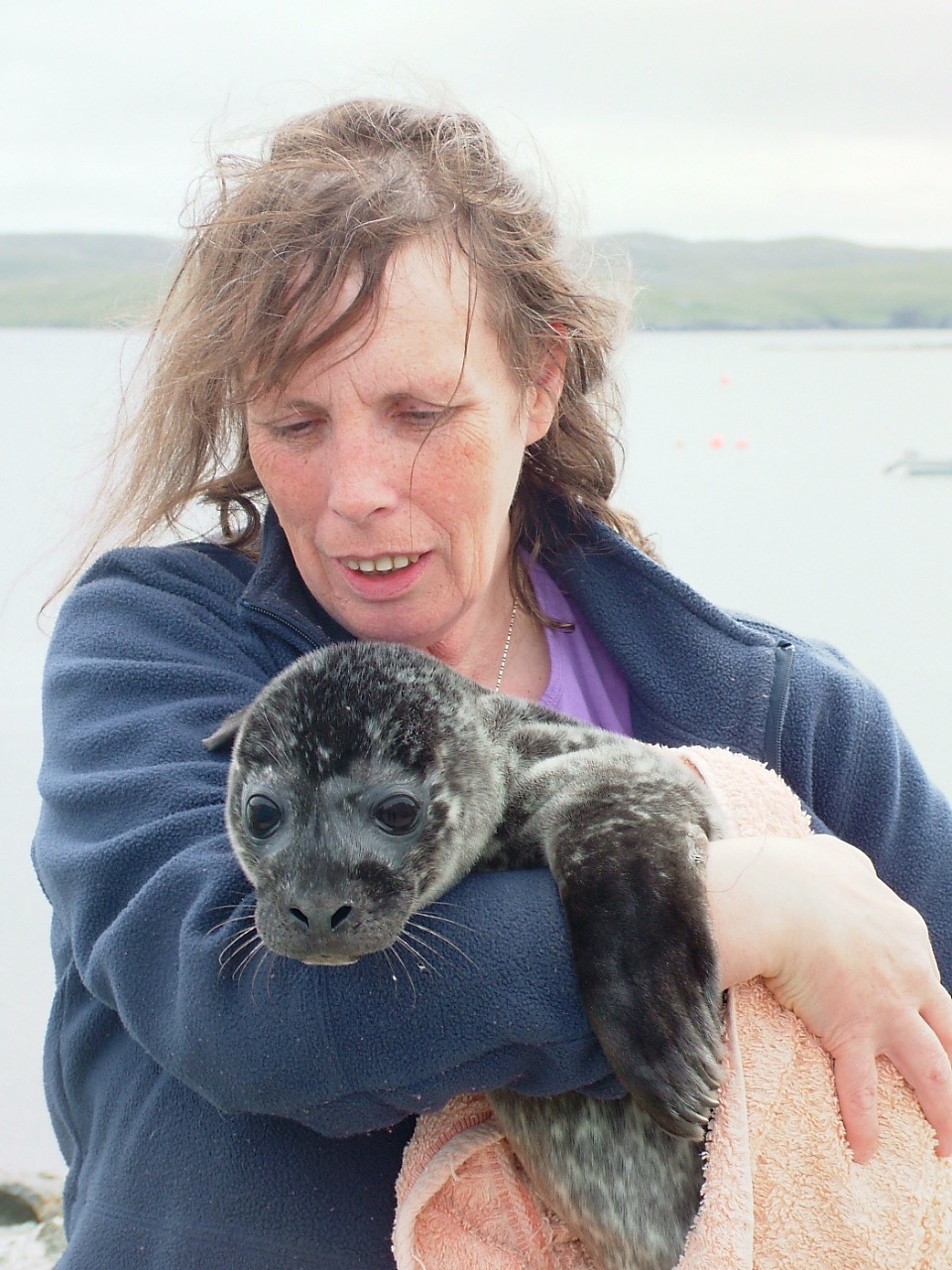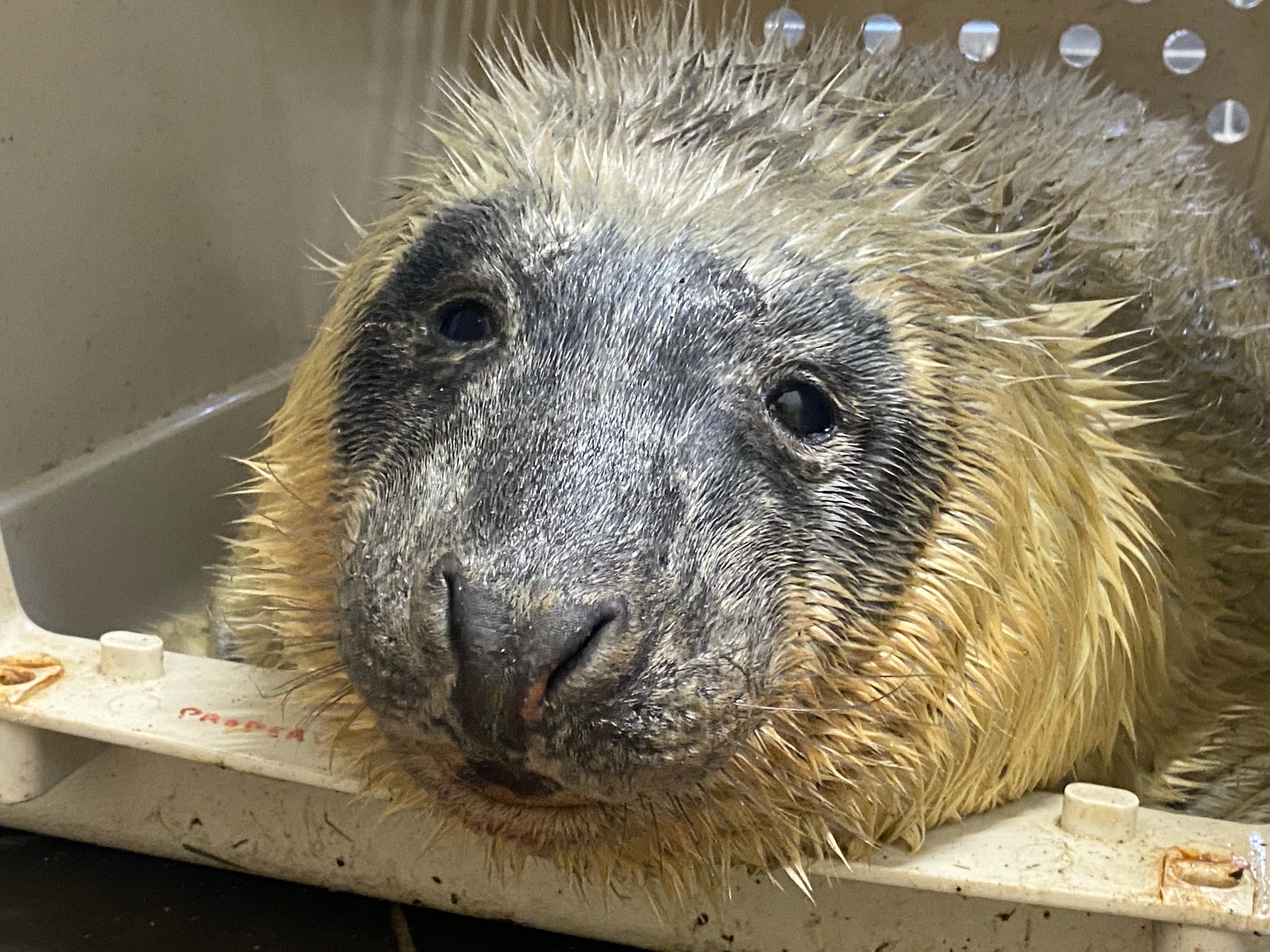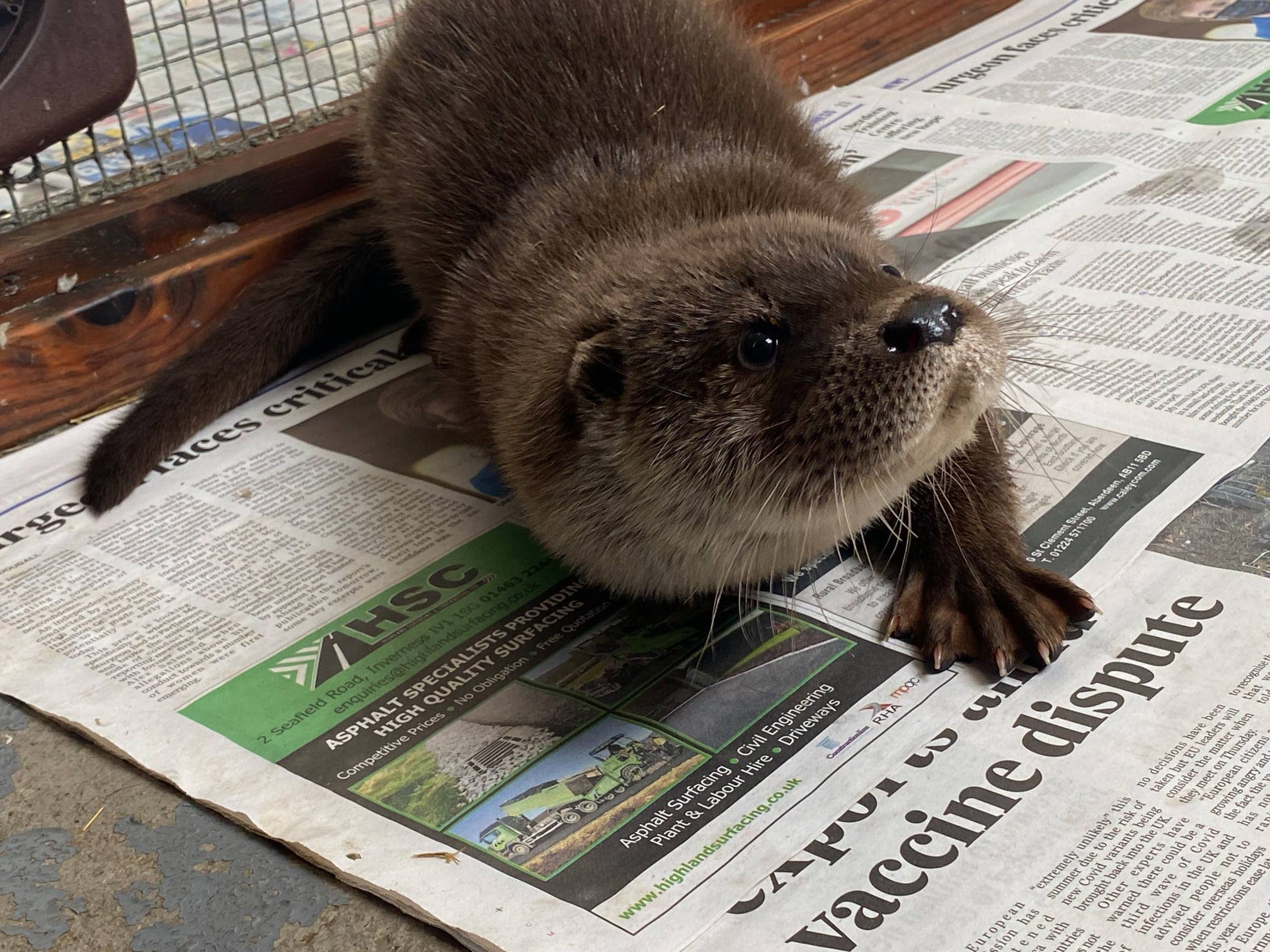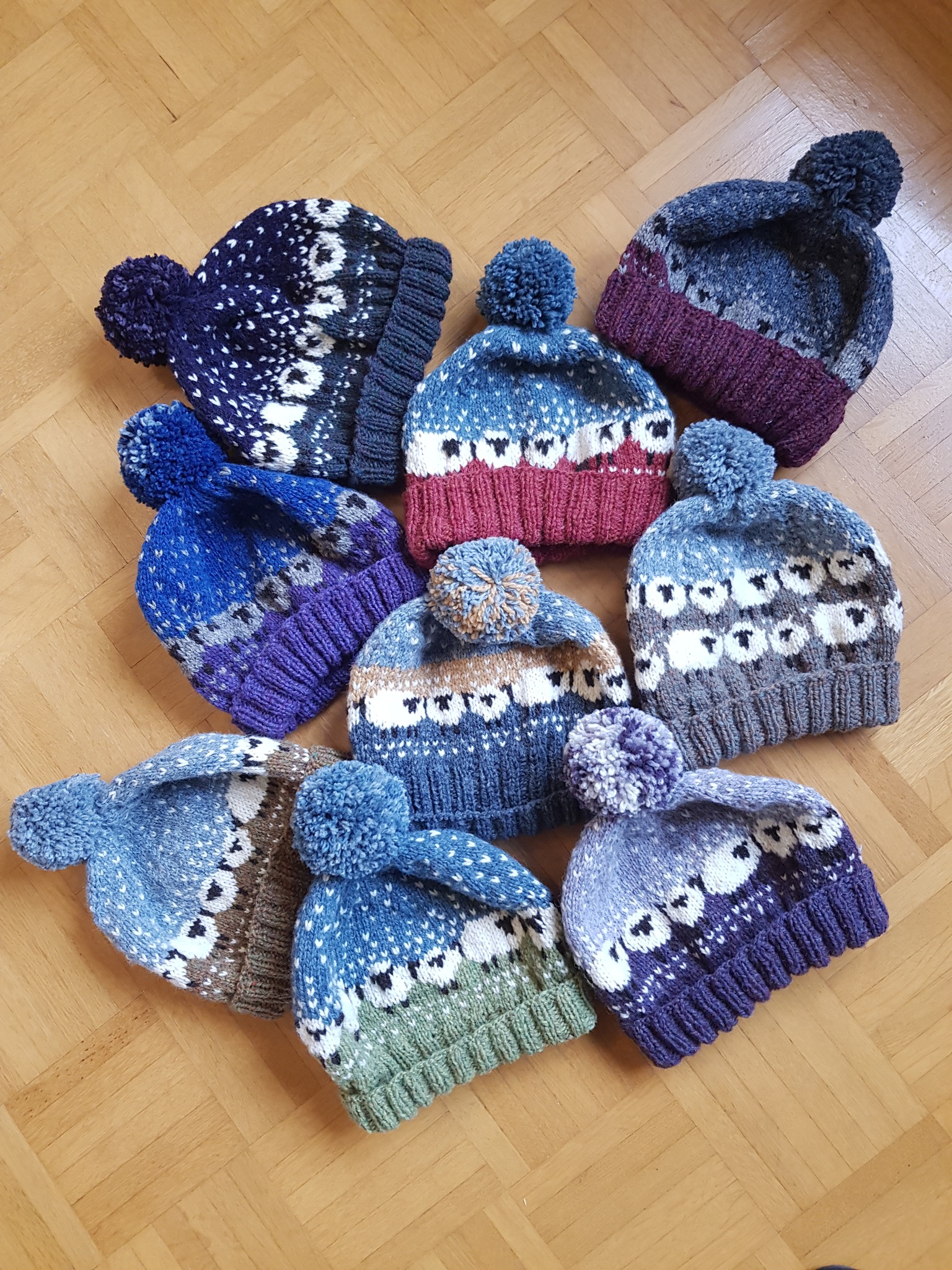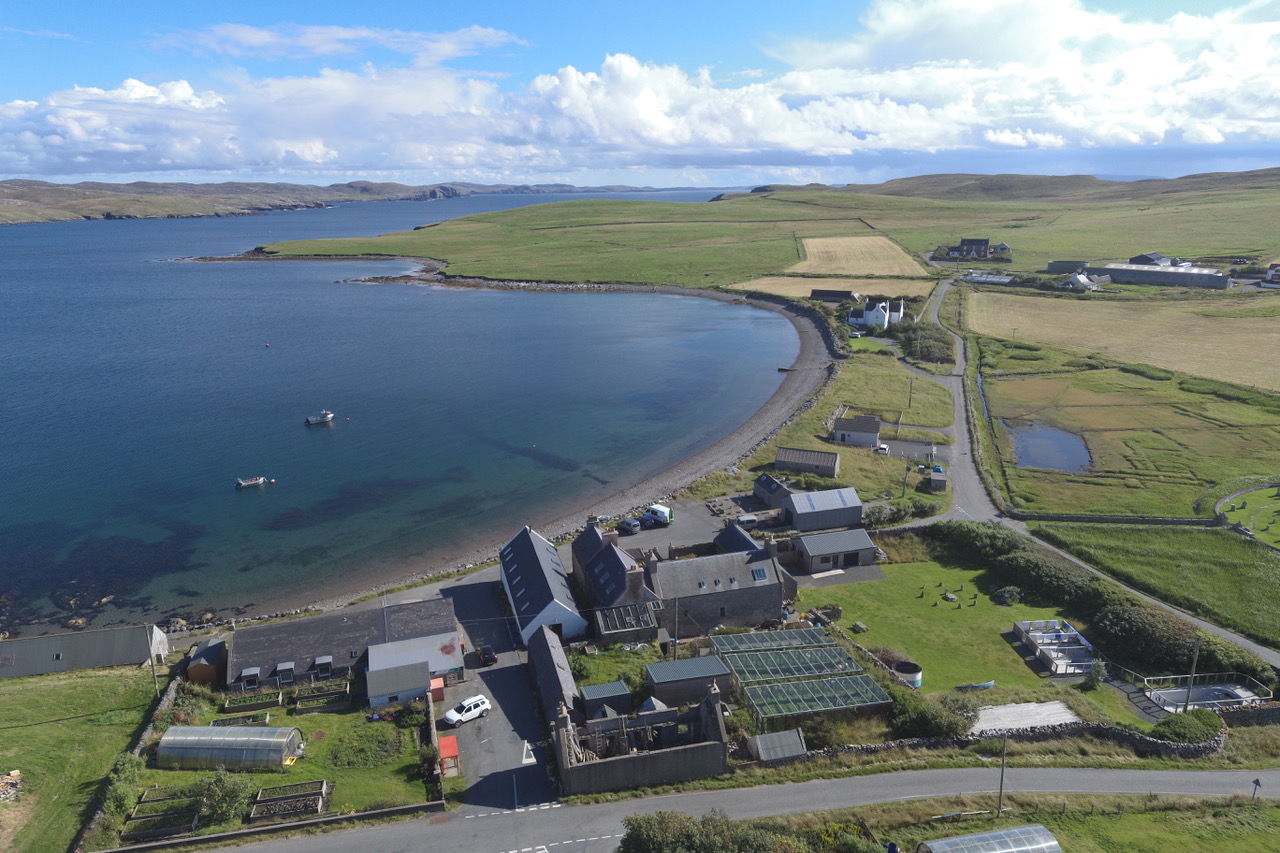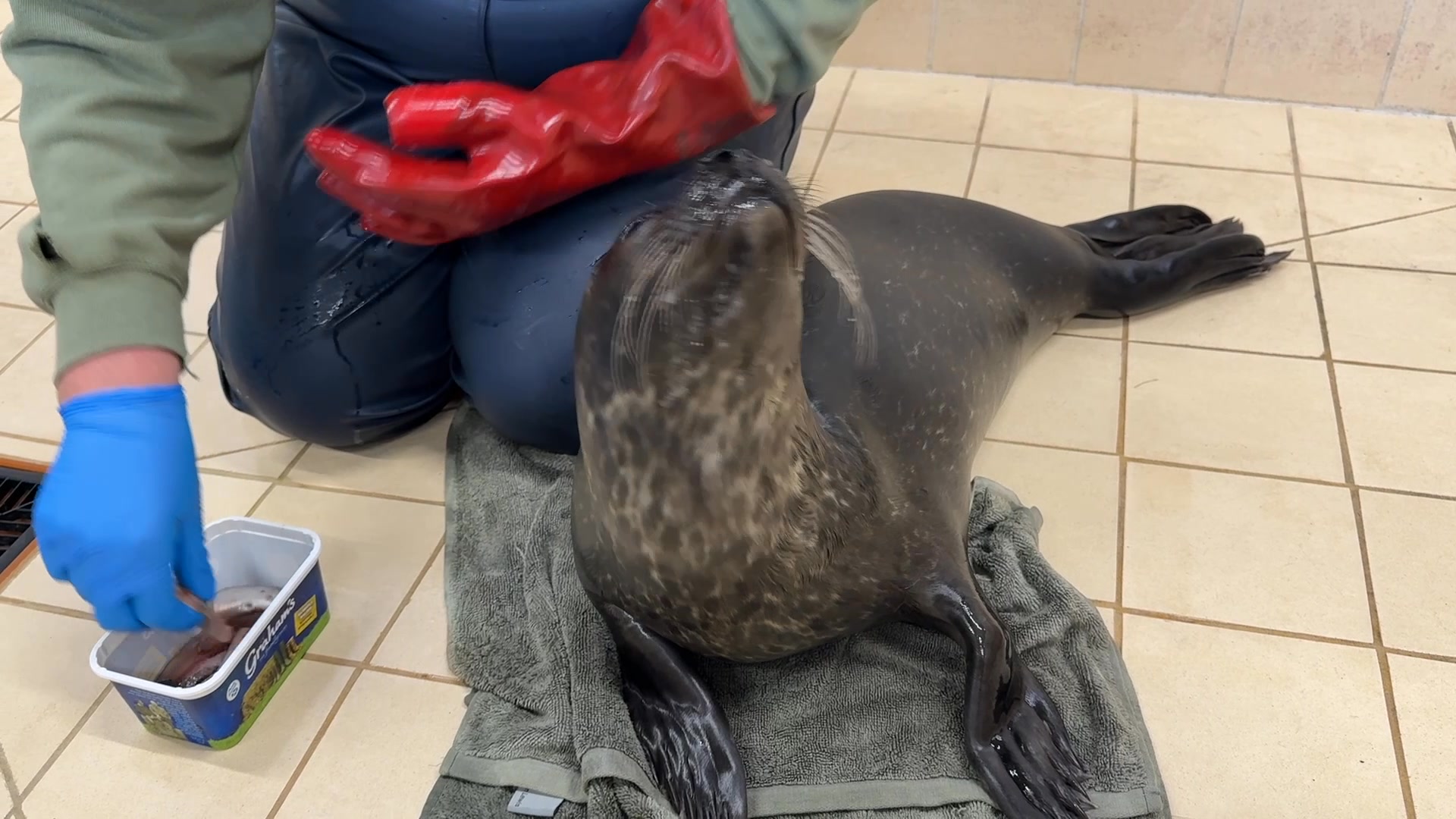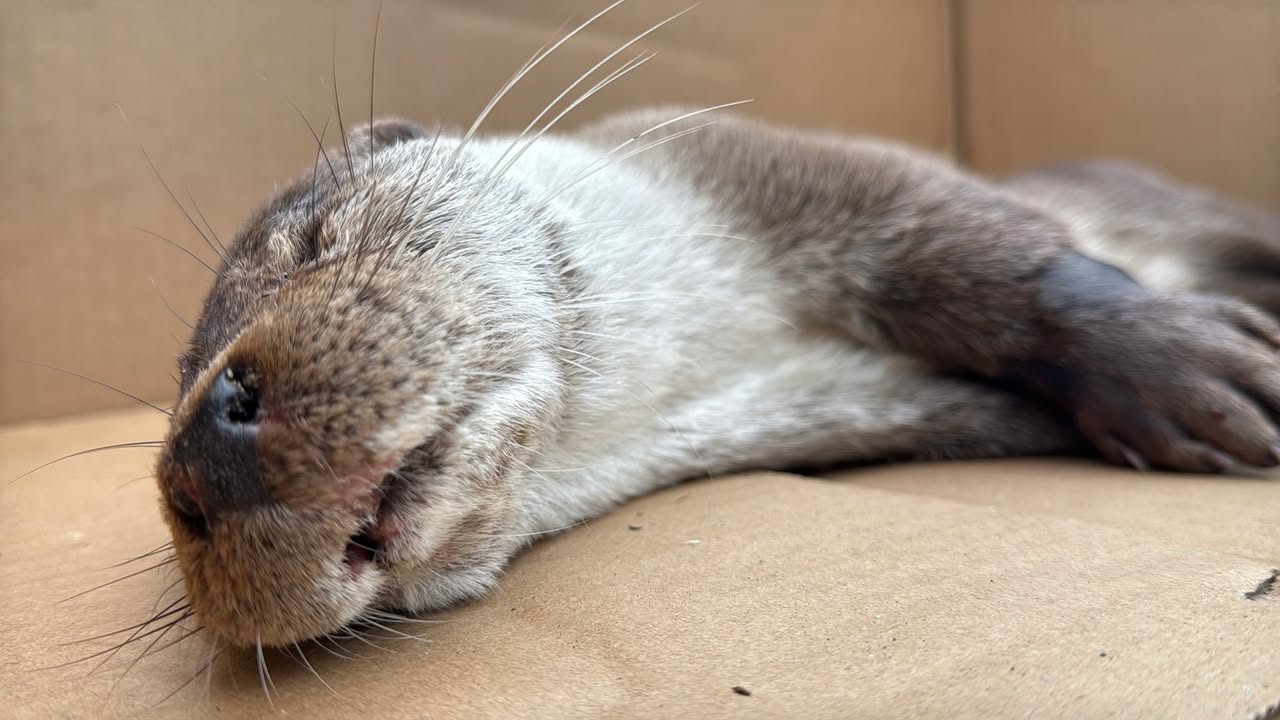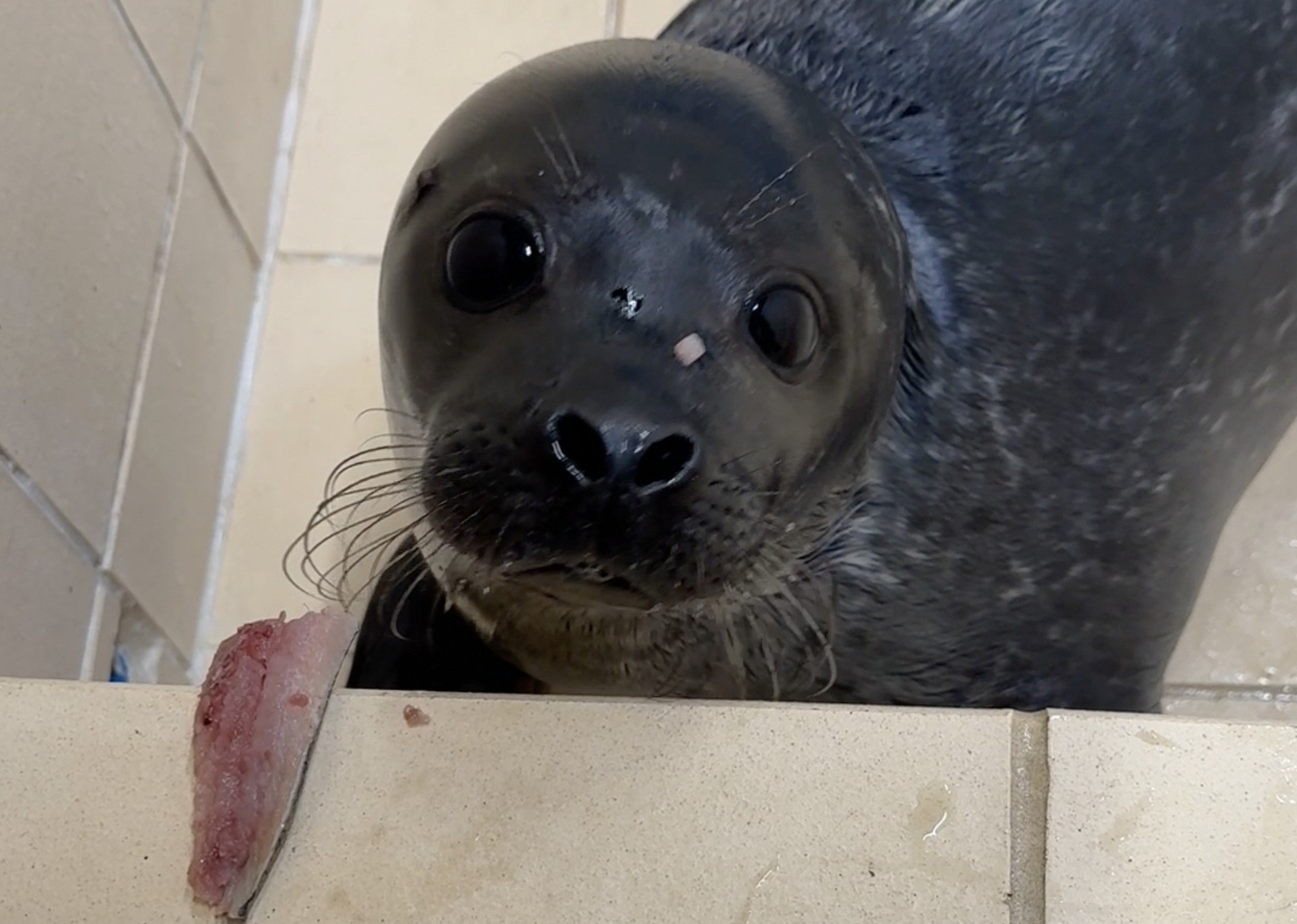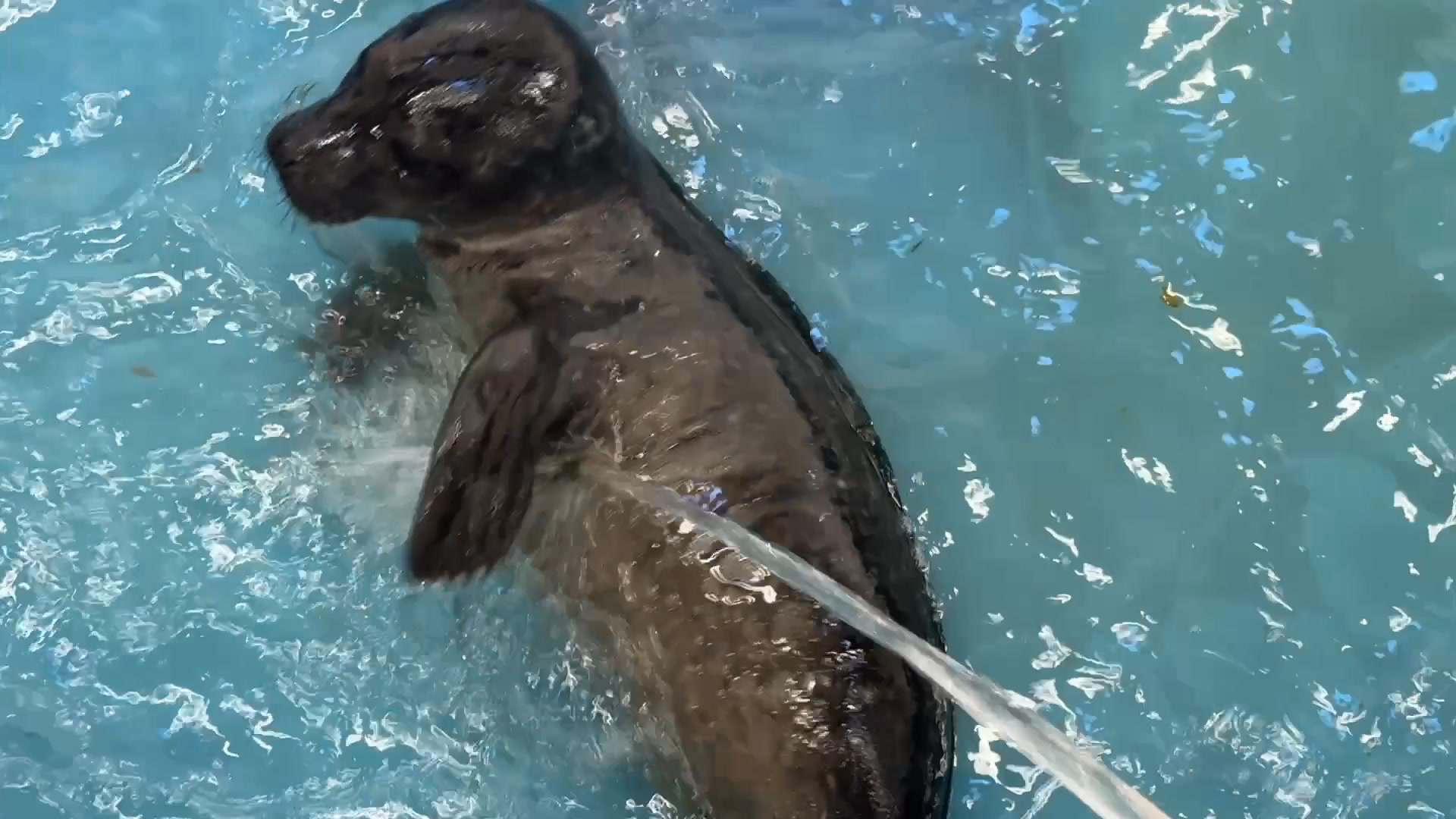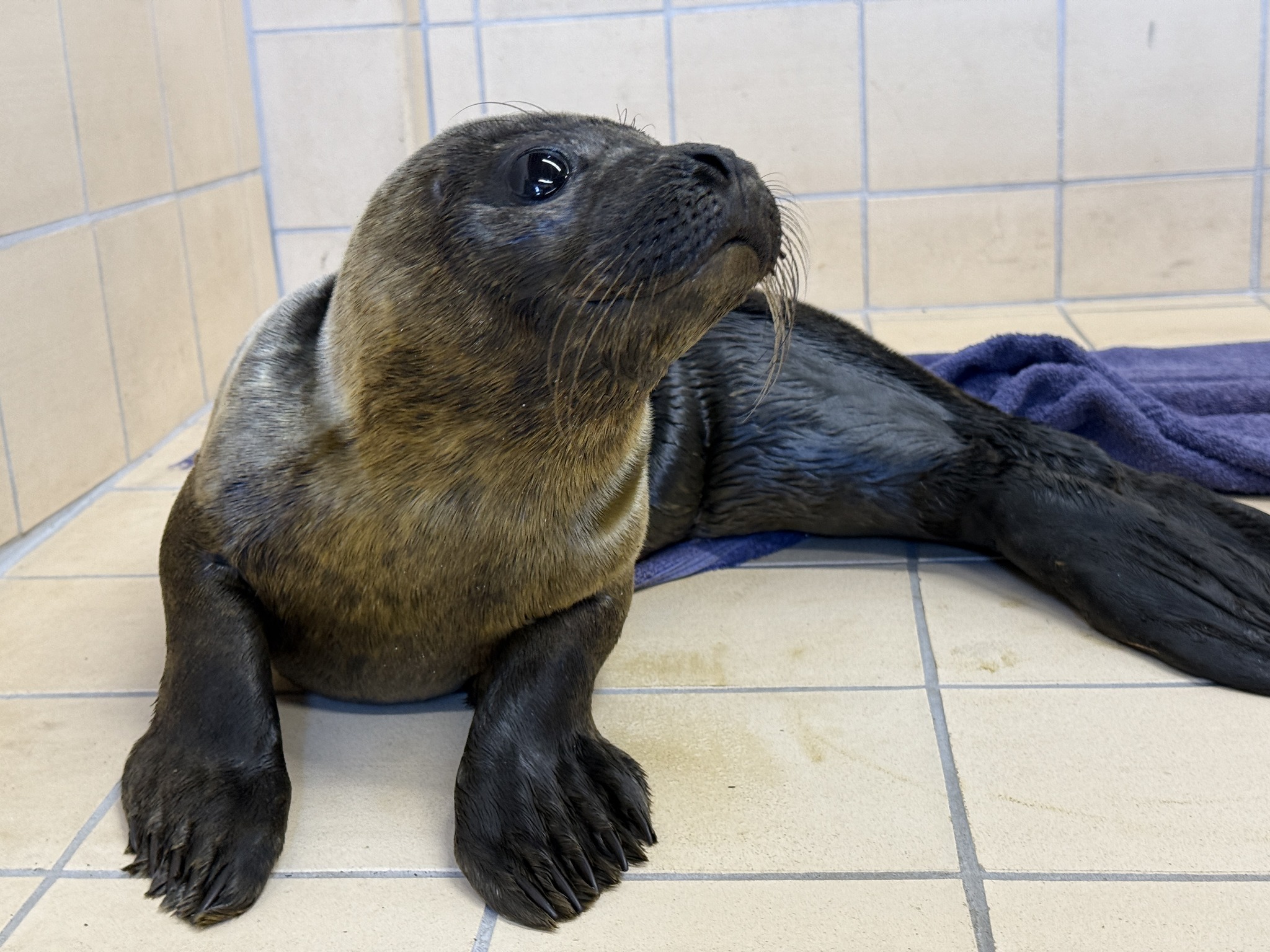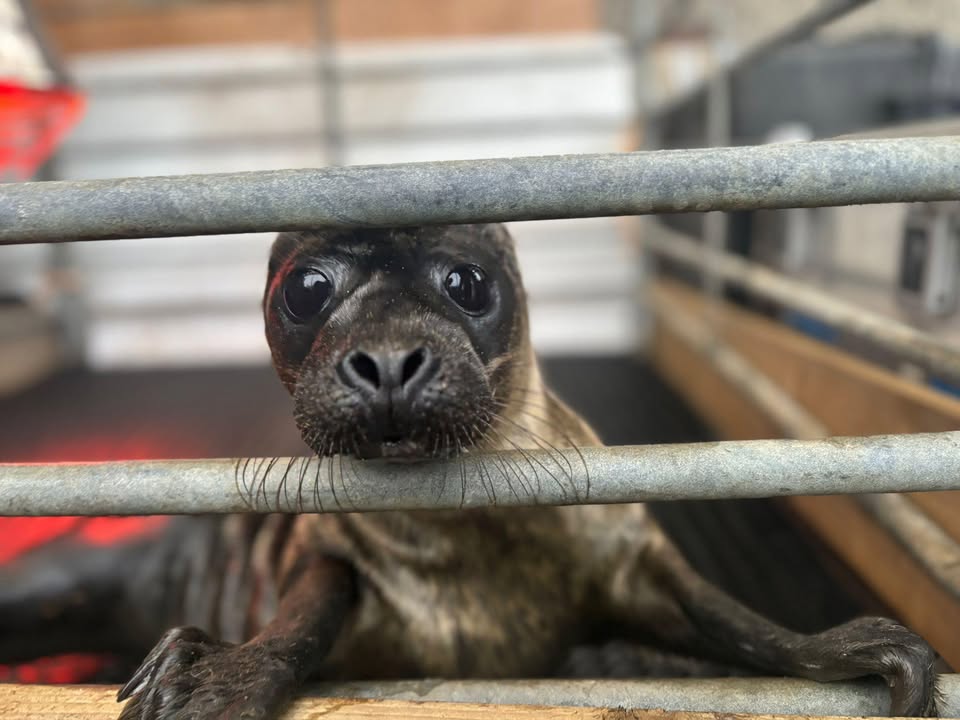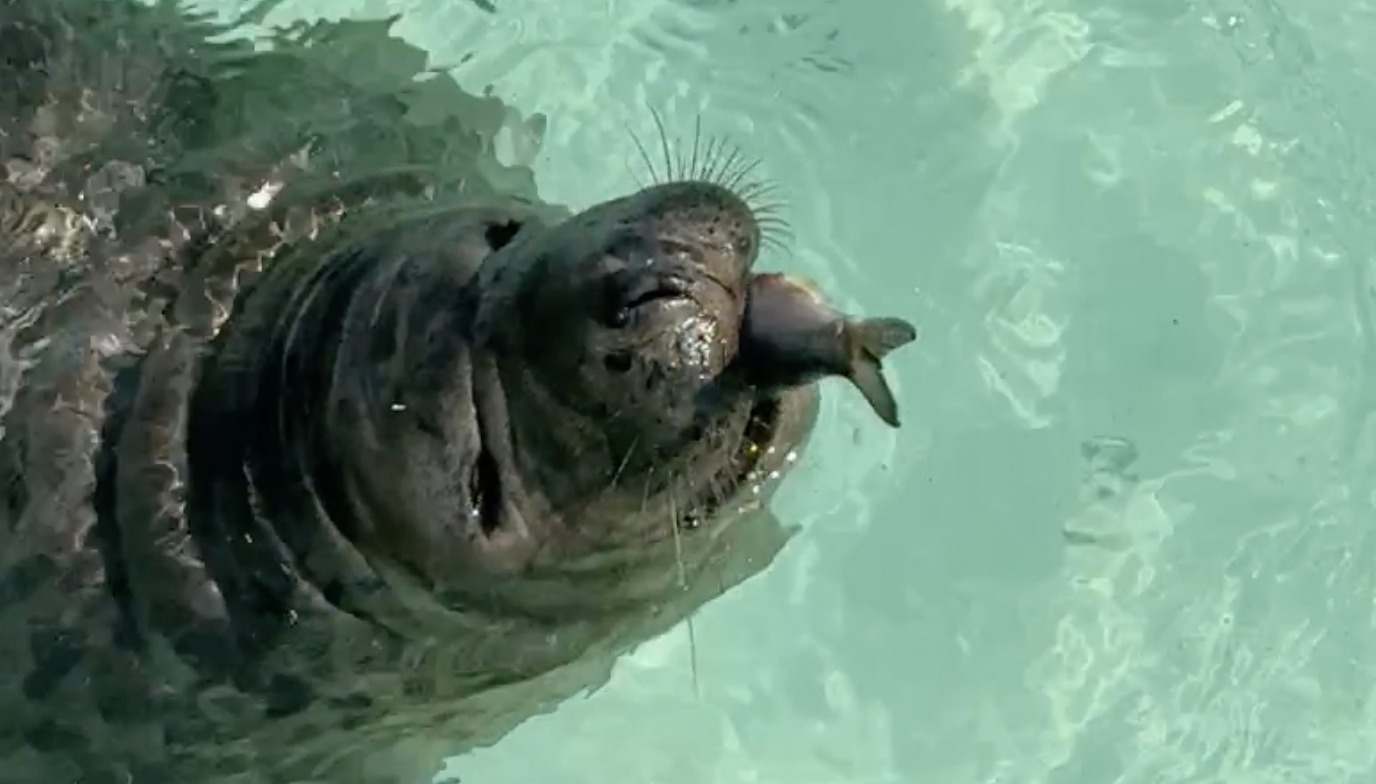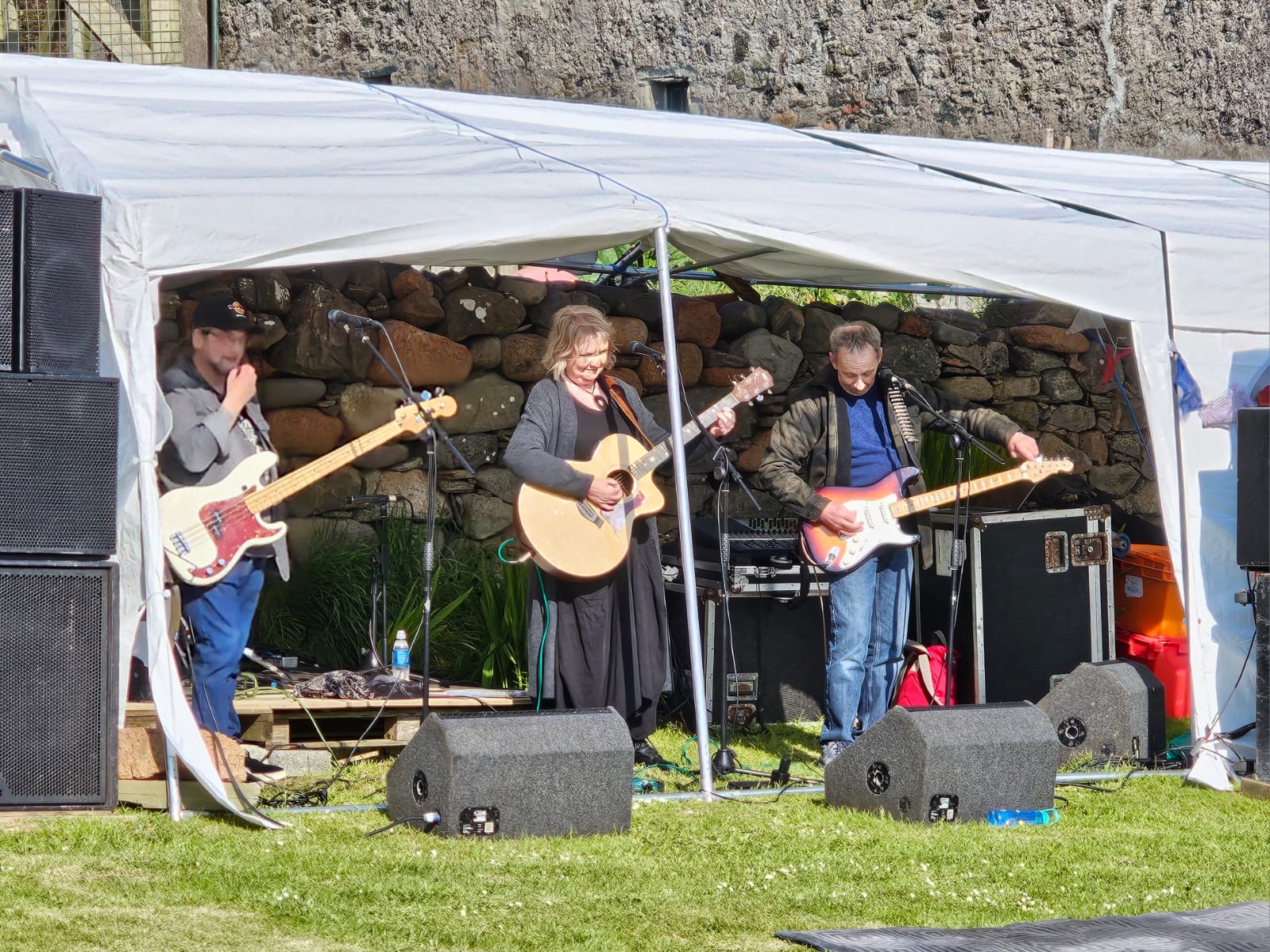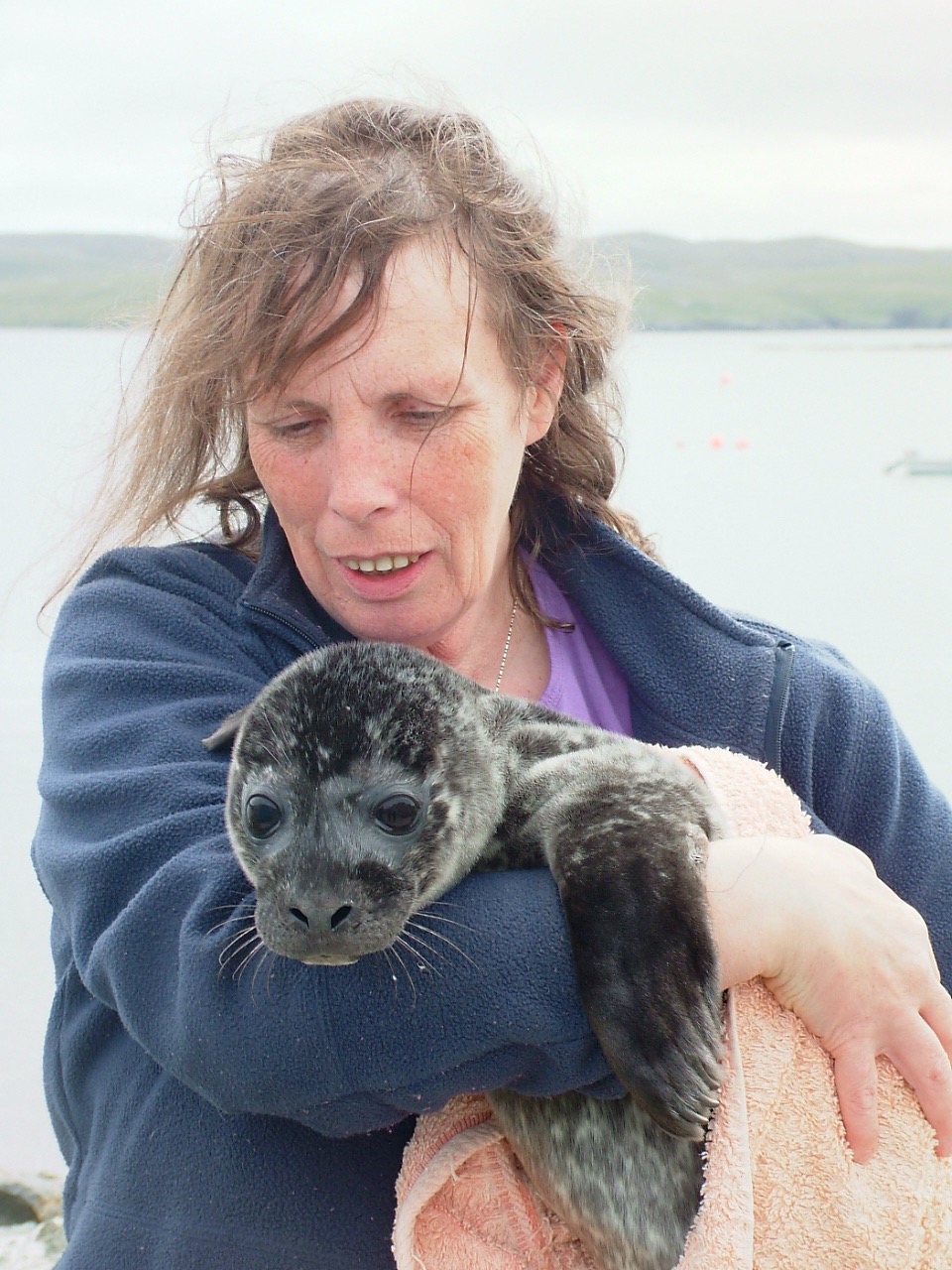
Jan Bevington
A great soul left this earth plane at the weekend.
On Sunday evening, 17 November 2024, Jan Bevington, died after a long struggle with illness. Jan was best known as the founder of Hillswick Wildlife Sanctuary which she created after finding a common seal pup on the beach outside her home almost 40 years ago and which soon earned her the title “Selkiewife”.
Jan was born in post-war Preston, England, in September 1947. She arrived in Shetland aged just 24 having spent three years living in the USA during the turbulent late ‘60s where she was deeply influenced by the hippie revolution and the peace movement, famously attending the decade’s two most well-known music festivals, Woodstock and Altamont.
She moved to Shetland in 1971 after working as a social worker in the north of England following her return from the USA, and landed a job at the St Magnus Bay Hotel in Hillswick.
There she met and married Tony Morgan with whom she bore three children, Gavin, Amy and Holly, and in 1976 the couple purchased the former knitwear factory at The Booth, where Shetland’s oldest pub was still operational.
In their hands, the pub became a huge success during the oil era serving the vast number of construction workers who descended on the islands, alongside the local clientele.
The couple separated in 1982 when Jan took over the reins of the pub as a single mother with three young children. Under her energetic stewardship The Booth became legendary for its music nights and fancy dress events, which are still talked about to this day.
Jan had always been a great lover of wildlife and nature, and when she came across a premature seal pup being washed up on the beach in Hillswick after a busy night in the pub in May 1987, she realised her true purpose in life had found her.
Rumour spread about what she was doing and by the end of that summer she was caring for seven seal pups…and the rest is history.
Initially her efforts to rescue seals attracted a mixed reception, with some members of the islands’ traditional fishing community regarding seals as a threat to their livelihoods and frowning on her new found vocation.
But Jan persisted and soon found herself on board the Wildlife Response Coordinating Committee (WRCC), which managed the islands’ oil spill response plan on behalf of the council and the locally based oil industry.
There she met and became friendly with the famous Shetland naturalist Bobby Tulloch who persuaded her to take over his role looking after otters. Having sat through an entire committee meeting, he approached her to pop the question. When she agreed, he plucked a sleeping otter cub from under his jumper and placed it under hers, adding a new role for the growing sanctuary.
Initially Jan only had her children’s paddling pool to work with and kept the seals in an old cooperage with half a roof, and no electricity or running water. Her pleas for financial help went unheeded until the Braer oil spill in January 1993, when the terminal operator BP told her: “Our purses are open”.
During the disaster response Jan found herself the centre of worldwide media attention, and accommodating more than 350 volunteers, as well as 600 members of the world’s press who descended on The Booth wanting to capture images of stricken seals and otters.
On the eve of the oil spill Jan had been ready to close The Booth as the pub was on the verge of bankruptcy. However the emergency allowed her to improve the animal care facilities with help from the council and the oil industry, and brought in enough donations from around the world for her to convert the pub into a vegetarian café, which she operated with volunteers, serving meals in return for donations to the sanctuary.
Da Böd Café became a roaring success after a slow start and operated until 2009 when Jan decided she had had enough of spending her summers serving the public and wanted to spend more time outdoors.
In the year of the Braer disaster, Jan met local journalist Pete Bevington, who had just returned to Shetland after spending two years in Australia. Having decided she never wanted anything to do with another journalist after her experience during the oil spill, it was ironic that the two should fall in love and they married in 1996.
The couple worked closely together running the sanctuary and the café with volunteers arriving to help every summer from all corners of the world, while Pete worked with the Shetland News website to provide the couple with a regular income.
In 2014 the WRCC offered to provide financial assistance to improve the animal care facilities and after several years of negotiations, they raised more than £450,000 from the oil industry, the local council, the European LEADER Fund and the wildlife charity World Animal Protection to secure the sanctuary’s future.
The couple also ran a successful fundraising campaign that continues to support the sanctuary with donations from kind and generous people in Shetland, the UK mainland and around the world.
Construction finally began in the winter of 2020, but within weeks of work starting Jan became ill and ended up in hospital with heart problems. She never fully recovered her health and last year was diagnosed with Alzheimer’s Disease. Despite a huge effort to keep going, she finally passed away on Sunday night at home in the arms of her beloved husband.
Jan’s devotion to wildlife and her deep integrity to her belief in the importance of nurturing nature in all its forms had a profound influence on the many people who came into contact with her. She kept her dream of a fully functional wildlife sanctuary alive until it became a reality, and was saddened that she herself was not able to enjoy the fruits of her efforts.
However her dream of creating a wildlife community has flowered with help arriving from near and far to ensure Hillswick Wildlife Sanctuary has a long term future and her legacy is secured.
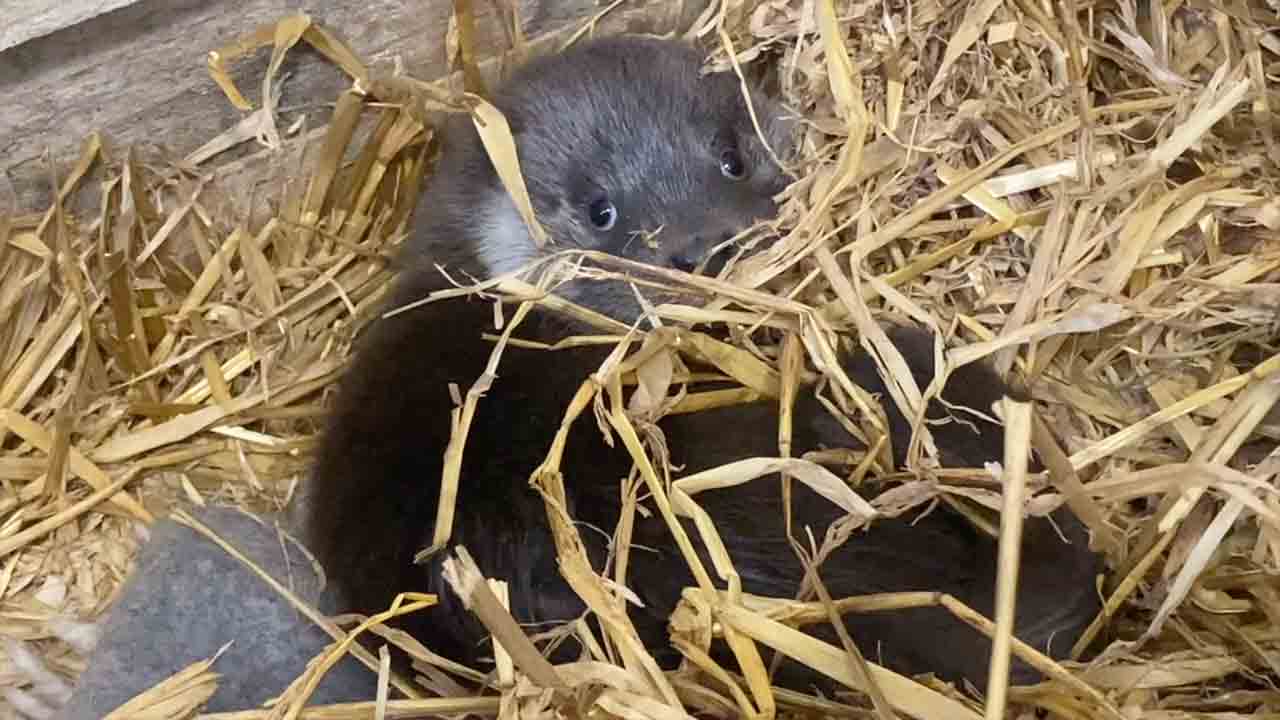
We rely on donations to continue our work… your support is greatly appreciated.
